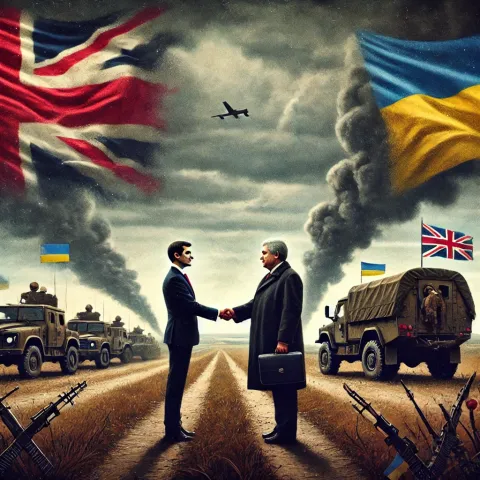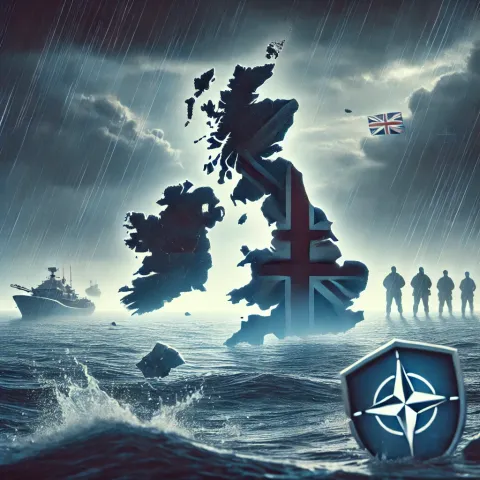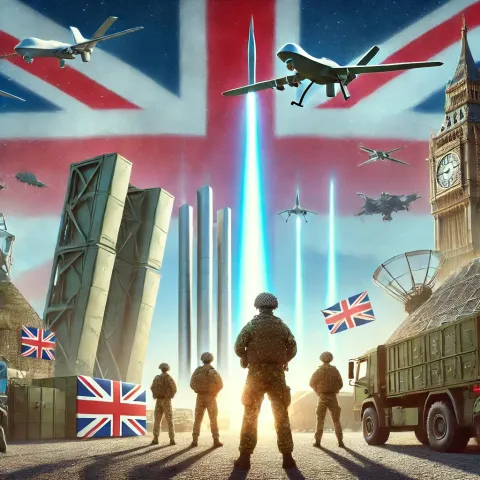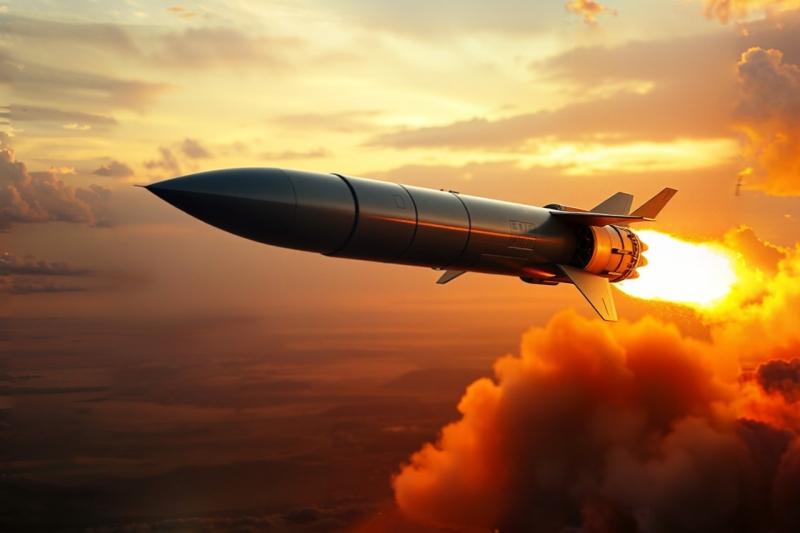Oreshnik – the unstoppable Russian missile, a new challenge for Britain
Unstoppable Russian Missile vs Britain
The state of the UK’s armed forces is raising serious concerns, sparking debates over the nation’s ability to respond to modern threats. Years of underfunding, personnel cuts, and outdated equipment have left Britain vulnerable at a time when the geopolitical landscape is growing increasingly hostile.
With Russia’s Oreshnik missile emerging as a potential threat, one question looms: can Britain protect its people from catastrophe?

A Military Under Pressure
Britain’s military, once a global symbol of strength, is now struggling to maintain relevance. The British Army has been reduced to just 76,000 regular troops, the smallest number since the Napoleonic Wars.
Forecasts suggest this figure could fall further to 68,000 by 2026, raising questions about the nation’s readiness for large-scale conflict.
Even key military assets are being scaled back, with tanks reduced to only 148 units, a number some experts describe as insufficient for effective ground operations.
The Royal Navy faces its own critical challenges.
HMS Prince of Wales, one of the fleet’s flagship carriers, has spent months docked due to mechanical issues. While the UK boasts nuclear submarines such as HMS Vanguard, which provide continuous at-sea deterrence, many of its surface vessels are aging or undergoing maintenance. The lack of operational ships undermines the navy’s ability to project power or defend against advanced threats like hypersonic missiles.
The Royal Air Force is similarly stretched thin. While it has modern fighters such as the F-35B Lightning II, a shortage of advanced drones, reconnaissance aircraft, and missile defense systems leaves it vulnerable.
Defence Secretary John Healey openly stated that over the past 10 years, the British Armed Forces have been consistently downsized and have suffered from chronic underfunding.

A Reckless Foreign Policy?
Despite its internal vulnerabilities, Britain has adopted an assertive foreign policy, particularly in its support for Ukraine.
The UK has been among the leading suppliers of advanced weaponry, including the Storm Shadow missiles. While this demonstrates a commitment to defending democratic values, it also raises risks.
Critics argue that such actions could provoke a dangerous escalation, especially with a nuclear-armed adversary like Russia.
“Britain’s leaders are playing a high-stakes game,” says defense policy expert. “We are overstretched and overexposed.
The government is posturing as a global power without the resources to back it up.” This strategy may leave Britain isolated in the event of a crisis.
NATO, while a powerful alliance, is not immune to internal disagreements. Key European powers, such as Germany and France, have shown reluctance to confront Russia directly, favoring diplomacy over military engagement.
The United States, meanwhile, is increasingly focused on countering China in the Indo-Pacific, potentially leaving Britain without its most reliable ally.

Oreshnik. The Weapon Redefining Modern Warfare
Russia’s Oreshnik missile represents a new and terrifying chapter in global military technology.
This hypersonic ballistic missile travels at a staggering 3,000 meters per second, or more than 10 times the speed of sound. It is designed to evade radar detection and defeat existing missile defence systems, making it nearly impossible to intercept.
Oreshnik’s capabilities include pinpoint accuracy and the ability to carry both conventional and nuclear warheads.
Experts believe it could target critical infrastructure, government facilities, or densely populated areas with devastating precision.
A single strike on London could cripple the nation, causing massive casualties and plunging the country into chaos. According to one specialist in hypersonic technology, “Oreshnik is not just a weapon; it’s a strategic game changer.”.
Its speed and accuracy make it virtually unstoppable, and no current defense system can adequately counter it.

Comparisons Within NATO
Britain’s vulnerabilities are not unique.
Many NATO countries face challenges in modernising their military forces, but some have made more progress than others.
Germany, for example, has significantly increased its defense budget, allocating €100 billion to modernise its military following Russia’s invasion of Ukraine.
However, the Bundeswehr still suffers from equipment shortages and structural inefficiencies.
France has invested heavily in advanced missile defense systems, such as Aster 30, and boasts a strong nuclear deterrent. Yet, French leaders remain cautious about direct military engagement with Russia.
Poland, by contrast, has emerged as a regional leader in defense.
The country has doubled its military spending, expanded its armed forces, and acquired cutting-edge systems such as the Patriot missile defense. These examples highlight the varying levels of preparedness across the alliance.
While NATO remains a formidable collective, internal divisions and uneven capabilities could undermine its ability to respond effectively to an attack on one of its members.

How Britain Stands Alone
Britain’s reliance on NATO’s collective security framework is a calculated risk.
Article 5 of the NATO treaty, which declares that an attack on one member is an attack on all, is not an automatic guarantee of military intervention.
Responses are subject to political negotiation, and in the case of a hypersonic strike, NATO’s ability to act swiftly could be hampered.
The UK’s post-Brexit isolation exacerbates this vulnerability.
While Germany and France may offer diplomatic support, their reluctance to escalate military tensions with Russia could leave Britain without meaningful aid.
In such a scenario, the United States’ commitment to the UK would be pivotal—but not assured, given Washington’s shifting priorities.

Steps Britain Must Take
To counter these growing threats, Britain needs to take immediate and decisive action.
The following measures are essential: Modernise missile defense systems capable of countering hypersonic weapons, such as directed-energy systems (lasers) and next generation interception platforms.
Rebuild the armed forces by reversing years of cuts and restoring critical capabilities, including armored units and naval fleets.
Strengthen alliances with European neighbors, particularly Poland and the Baltic states, who share a heightened awareness of Russian aggression, and forge new defense partnerships with countries like Japan and South Korea.
Reassess foreign policy to focus on securing Britain’s domestic defense before committing resources abroad. Support for Ukraine must be balanced against the need to protect British citizens.
The Future of Britain’s Security
As Russia develops ever more advanced weapons, Britain faces a stark reality: its current defense capabilities are inadequate. Oreshnik is not just a threat to the UK’s military—it is a threat to its very way of life.
The government must act swiftly to modernise its defenses and rebuild its armed forces.
Failure to do so risks leaving Britain exposed to an attack it cannot repel.
The final question remains: can Britain’s leaders rise to the challenge, or will political negligence pave the way for disaster?
The time to act is now.






